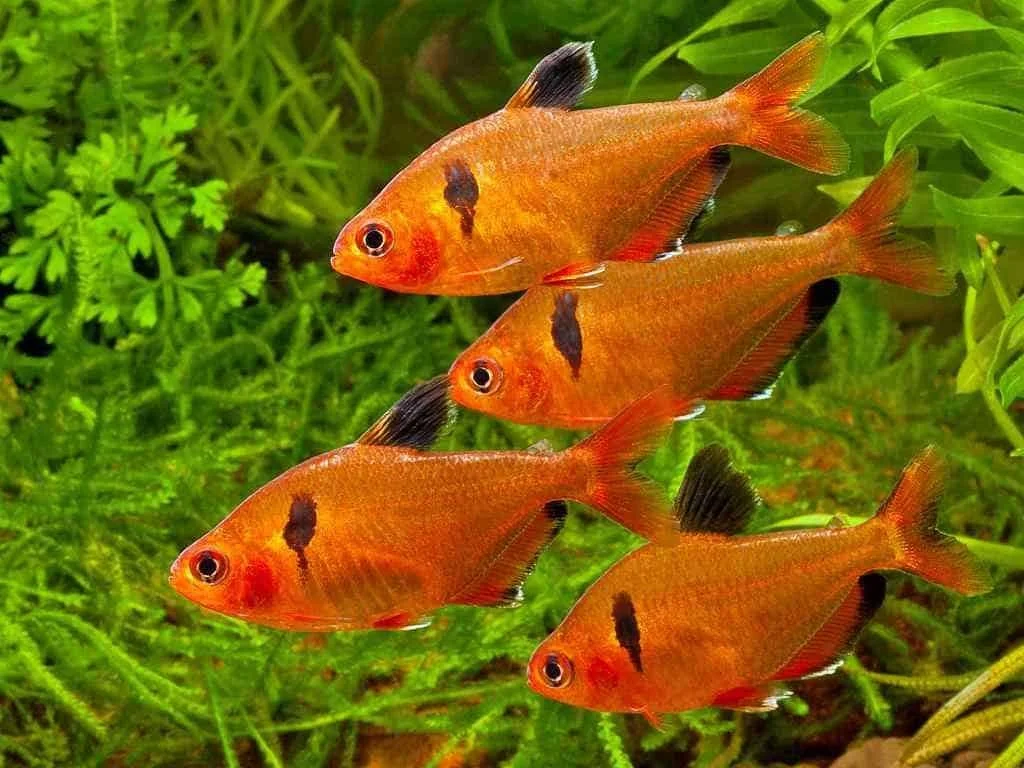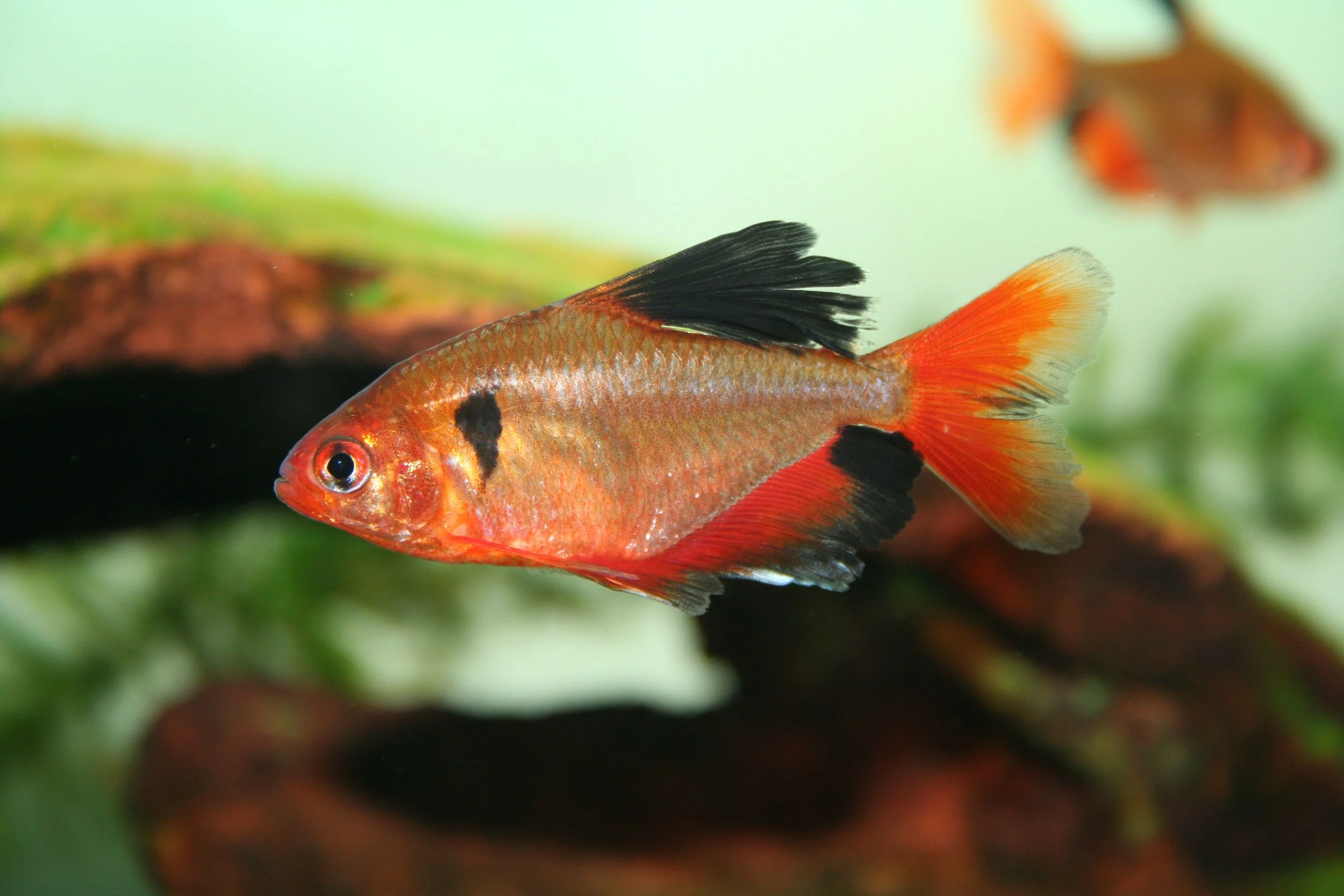

Serpae Tetra
The Serpae Tetra (Hyphessobrycon eques) is a small freshwater fish native to South America, especially the Amazon Basin. It is recognized for its red-orange body and distinct black spot behind the gills. Hardy and active, it is a popular community fish but can be slightly aggressive, particularly fin-nipping, if not kept in a proper school.
Care Guide
Tank Size: Minimum 20 gallons for a small group.
Water Conditions: Temperature 22–27°C (72–81°F), pH 5.0–7.5, Hardness 5–25 dGH.
Diet: Omnivorous; will accept flakes and pellets, with live or frozen foods like bloodworms, brine shrimp, and daphnia recommended for best color and health.
Temperament: Semi-aggressive; best kept in groups of 6 or more to reduce nipping behavior.
Tank Setup: Provide live plants, driftwood, and open swimming areas; subdued lighting enhances coloration.
Tankmates: Suitable with other small, fast-moving species such as tetras, danios, and rasboras. Avoid slow or long-finned species like angelfish, guppies, and bettas.
Lifespan: Typically 5–7 years with proper care.
Key Tip: Always keep Serpae Tetras in a school to minimize aggression and promote natural behavior.
Size: 2.5-3cm
WHOLESALE
The Serpae Tetra (Hyphessobrycon eques) is a small freshwater fish native to South America, especially the Amazon Basin. It is recognized for its red-orange body and distinct black spot behind the gills. Hardy and active, it is a popular community fish but can be slightly aggressive, particularly fin-nipping, if not kept in a proper school.
Care Guide
Tank Size: Minimum 20 gallons for a small group.
Water Conditions: Temperature 22–27°C (72–81°F), pH 5.0–7.5, Hardness 5–25 dGH.
Diet: Omnivorous; will accept flakes and pellets, with live or frozen foods like bloodworms, brine shrimp, and daphnia recommended for best color and health.
Temperament: Semi-aggressive; best kept in groups of 6 or more to reduce nipping behavior.
Tank Setup: Provide live plants, driftwood, and open swimming areas; subdued lighting enhances coloration.
Tankmates: Suitable with other small, fast-moving species such as tetras, danios, and rasboras. Avoid slow or long-finned species like angelfish, guppies, and bettas.
Lifespan: Typically 5–7 years with proper care.
Key Tip: Always keep Serpae Tetras in a school to minimize aggression and promote natural behavior.
Size: 2.5-3cm
WHOLESALE
